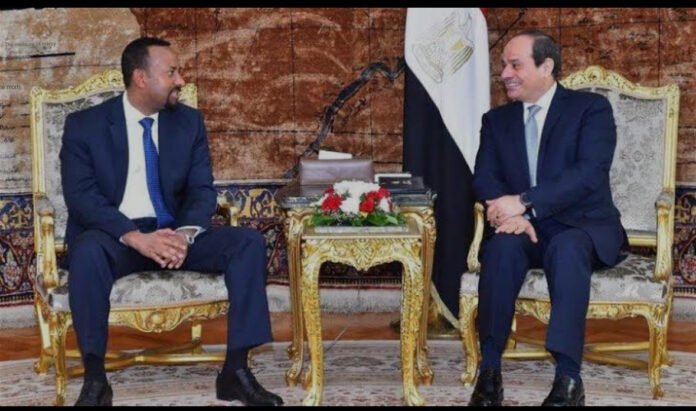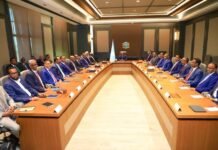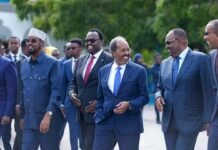Reporting by: HAN News Desk
CAIRO, (HAN) — Egypt has confirmed the collapse of diplomatic negotiations with Ethiopia over the Grand Ethiopian Renaissance Dam (GERD), warning that it will take all necessary measures — including potential military action — to safeguard its share of the Nile waters.
The announcement marks a significant escalation in one of Africa’s longest-running diplomatic disputes, with Cairo accusing Addis Ababa of showing “intransigence and irresponsibility” throughout the years of dialogue.
In a strongly worded statement released on Tuesday, Egypt’s Ministry of Foreign Affairs said Ethiopia’s “unilateral” actions in continuing to fill and operate the dam without agreement had rendered further talks “meaningless.”
“Egypt will not stand idly by if its water security is threatened,” the statement declared. “Ethiopia bears full responsibility for the collapse of the negotiations and the consequences that may follow.”
The GERD dispute, now in its second decade, has tested the limits of regional diplomacy. Since the dam’s construction began in 2011, Egypt, Ethiopia, and Sudan have engaged in dozens of negotiation rounds — mediated at times by the African Union, the United States, and the World Bank — yet no binding agreement has been reached.
Egypt, which depends on the Nile for about 97% of its freshwater needs, fears the project could drastically reduce its share of the river’s flow, impacting millions of citizens, agriculture, and power production.
Ethiopia insists that the $4.6 billion project is essential for its development and economic independence, aiming to generate more than 6,000 megawatts of electricity — enough to power the entire nation and export to neighboring countries.
Sudan, caught between both sides, has expressed concern over the dam’s potential impact on its own water regulation and safety, particularly the risk of flooding.
International mediators have repeatedly tried to broker a compromise, but mutual distrust and domestic politics continue to derail progress.
Cairo accuses Ethiopia of deliberately ignoring international mediation frameworks, while Addis Ababa argues that Egypt seeks to preserve a colonial-era dominance over the Nile’s waters.
Analysts say the tone from Cairo has hardened in recent months, as Ethiopia completes successive filling stages of the dam’s massive reservoir, which can hold over 70 billion cubic meters of water.
“This dispute is about far more than water,” said a regional affairs analyst based in Khartoum. “It’s about sovereignty, regional power, and the right to development. Both sides view the Nile as central to their national identity.”
For Egypt, the Nile River has always been its lifeblood — a symbol of civilization, stability, and continuity. With over 100 million citizens living mostly along the river’s banks, any disruption to its flow poses an existential threat.
Cairo’s leaders, from Hosni Mubarak to President Abdel Fattah el-Sisi, have repeatedly declared that Egypt’s “water rights are non-negotiable.”
Ethiopia, however, sees the GERD as a project of national pride and self-determination. Long marginalized in access to the Nile’s resources, Addis Ababa argues that it has the right to harness its own natural assets for development and electrification. The project has united Ethiopians across political and ethnic divides — rare in a country often marked by internal tensions.
Despite fears of open conflict, most experts believe a military confrontation remains unlikely, given the potential consequences for regional stability. Instead, they urge renewed mediation efforts and confidence-building measures to rebuild trust.
“The GERD could be a source of cooperation rather than conflict,” said a researcher at the Institute for Security Studies (ISS) in Addis Ababa. “But that requires transparency, technical coordination, and political will on all sides.”
The GERD dispute has become a defining test for African-led conflict resolution mechanisms. The African Union has repeatedly emphasized “African solutions to African problems,” yet the lack of progress underscores the challenges of balancing national interests with collective stability.
With tensions simmering and rhetoric intensifying, the coming months may prove decisive. Whether through renewed diplomacy or further escalation, the fate of the Nile — and the millions who depend on it — remains uncertain.





